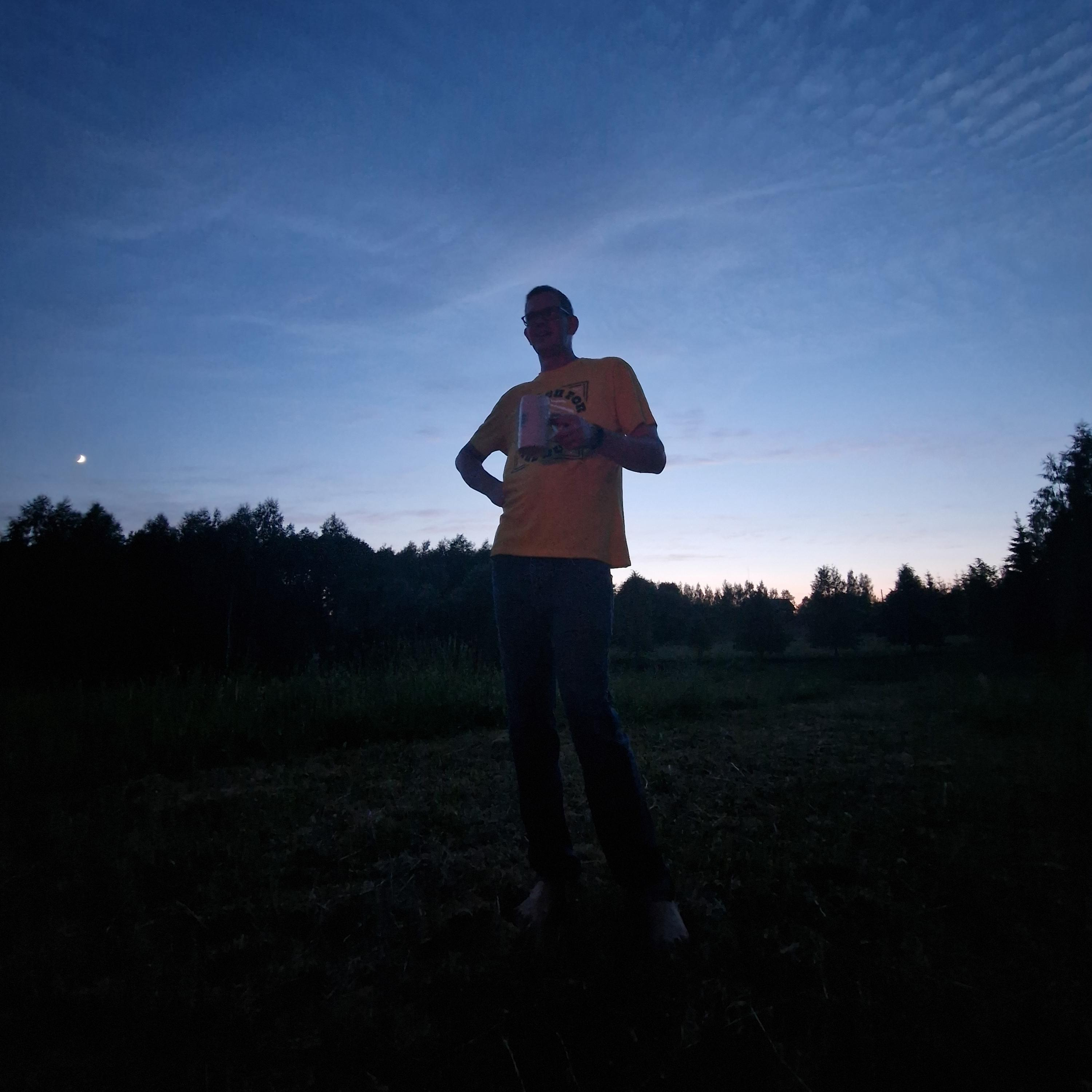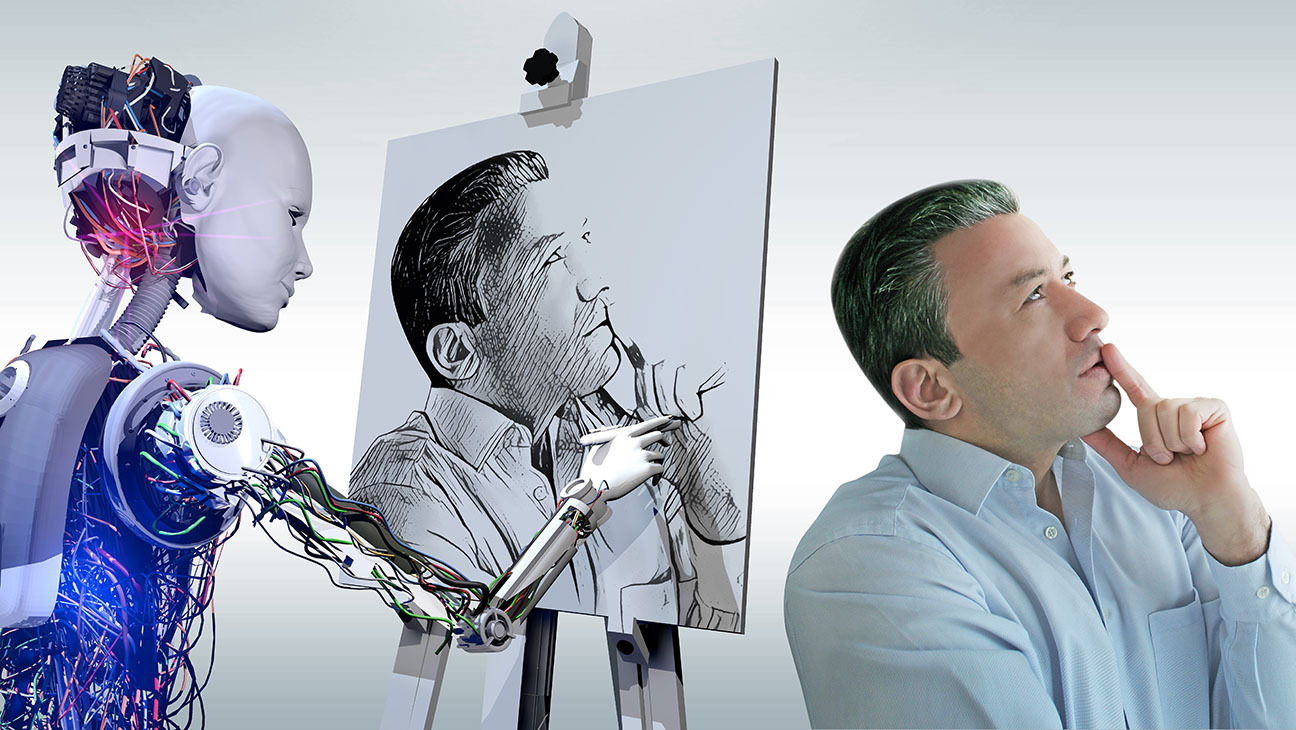Hope: AI gets so good that people using a personal computer can produce full TV series with a single prompt, delare it uncopyrightable, and share the best results online as a alternative to corporate stuff.
Fear: IP law becomes so disconnected from the current situation that it prompts governments start over from scratch. New IP law is written by the corporations for the corporations, and any form of creativity is restricted and monetized.
That’s great! It means artists can continue to use AI art for projects they don’t intend to sell, and Hollywood, which already has too much power, still relies on others.
Artists can still make money and copyright their stuff. You just can’t use exclusively AI to create the images. Cleaning up an AI generated image count as artistic work. Color correct, add missing fingers, make the eyes point the same way, remove background monstrosities. It all adds up.
Unfortunately this also goes for Hollywood. They can generate the bulk of the work and have one guy do the editing and suddenly they own the edit.
The real losers in this are the people that generate images with no modifications and post it as is while pretending that they are doing art.
You are correct. Hollywood will simply change up a couple things and then use the assets.
However, I‘m still undecided about how I think about whether generating AI art should count as Human-generated or not. On one hand, people can spend hours if not days or week perfecting a prompt with different tools like ControlNet, different promptstyles and etc. On the other hand, somebody comes up to midjourney, asks for a picture of a dragon wearing a T-Shirt and immediately gets an image that looks pretty decent. It’s probably not exactly what they wanted, but close enough, right? AI gets you 90% there what you want, and the other 10% is the super-hard part that takes forever. Anyway, sorry for dumping my though process from this comment chain on here xD
Sorry, I am firmly in the camp where that isn’t art. The prompt writing can be a literary work but the result isn’t a work of art. You set up the environment that allowed the image to exist but you didnt make the image.
I remember this artist who used a jet engine to throw paint onto a big canvas. Was the resulting artwork made by the jet engine, based on what you’re saying?
I’m not confrontational. I just like the discussion. This whole topic is, well, fascinating.
So does a prompt not count as human input Edit: ok so if i train a style lora based on my own style and then prompt the ai to generate artwork , then I still don’t deserve the copyright? What if I do all that and then do touchups by hand is that somehow different? I find all this stuff so silly tbh but it is interesting to discuss.
If you hire someone and tell them “paint my room orange”, did you paint the room orange?
Weirdly enough, it might.
I mean, sure, an orange room doesn’t qualify for copyright.
But if you instruct helpers to help you make a copyrightable work to your specifications (e.g. architects instructing workers to build the building), then you own the copyright.
It all comes down to who had what part of the creative process.
For example, if I create a digital artwork and I use an AI tool to increase the resolution, I totally still own the artwork.
I am also pretty sure I retain the copyright if I let an AI fix my spelling in a story I wrote.
But if my input is negligable (“Write me a short story.”), I definitely don’t have the copyright.
Copyright law is complicated and there’s never a clear general answer.
“For example, if I create a digital artwork and I use an AI tool to increase the resolution, I totally still own the artwork.”
There are tools that allow you to convert a stick figure drawing plus a prompt into whatever you want. I can draw a stick figure holding a circle and prompt it as a bunny holding an apple and I could get the desired output. Of course thats more than increasing resolution but where do we draw the line.
That’s what I said, yeah.
The line is probably drawn where it is drawn when using any other tool: For your contribution to be copyright-worthy it needs to be above the required threshold of originality. Copyright doesn’t distinguish between different tools you use, it just requires you to have put enough creativity into it for it to be a creative work.
AI in this respect is very close to photography.
Just pulling out your phone and snapping a picture of something does not clear the theshold, so you have no copyright over it, no matter how detailled the picture is.
If you set up the scene and put a lot of creative input into preparation and post-processing of the picture, you will clear that threshold and you will have copyright over it.
If this sounds arbitrary and hard to pinpoint whether that threshold (which is not clearly defined anywhere) is cleared, you are totally right. This is a big issue with the copyright system, but it’s also nothing that will be fixed by some people commenting on the internet.
So the question is “Did the human input into the AI tool clear the thresold or not?”
This question is the same, regardless of what tools are used, and it’s a common part of lawsuits concerning copyright. There is no blanket answer and it needs to be checked on a case-by-case basis. That’s how copyright law works.
we let the AI draw it for us
So if I use a hammer to create art I can’t protect it because I used a hammer? Exchange hammer for AI
My 2c:
On projects over a certain revenue the AI could say how much it was influenced (trained on) by the respective copyrighted content and then royalties could go out to the people who own that content in percents.
My 4c:
There could be an intellectual property blockchain and everything that can be used to train an AI gets a token.
Again, I think all of this should only be mandatory for huge corporations, similar to how unreal engine is free under 1 million dollar earnings.
This could also be an interesting way to see how human made content makes its way through the “minds” of AIs.
That would probably be picocents per artist. How do you want to transfer that amount of money?
Well, of course not, because since some diffusion generation are deterministic, that would mean that a specific set of parameters is now copyrighted, so nobody else gets to type in that particular set of numbers into the UI without paying the copyright holder, which of course makes no sense.
Same reason you can’t copyright, say, cooking recipe for a burger.
Food and flavors aren’t copyrightable or patentable because of an explicit exclusion of them. It has nothing to do with “determinism”.No. Recipes are not copyrightable because they’re largely functional things for instructing a process to create a food, which simply is not in the purview of copyright. Specific recipes could very well be patented, depending on the specifics. There are no “explicit exclusions” here.
And still the list of ingredients and food preparation process will not be copyrighted, just the way the specific recipe is written. Anyone could write a simple rephrased version of that recipe which creates the same dish and sell it. Or sell the dish in their restaurant.
This doesn’t mean artists or movie studios can’t make AI creations and sell them. It just means they can’t stop people from copying and distributing them.
If a well regarded artist uses generative AI to make art, then prints a single copy or a limited edition and signs them, they can sell them. Other people can copy it, but it won’t be the same. They won’t have the same value as the ones the artist produced, and they won’t be signed.
Can they copy the artist’s ai generated art including the signature and sell that?
artist’s or ai generated?





